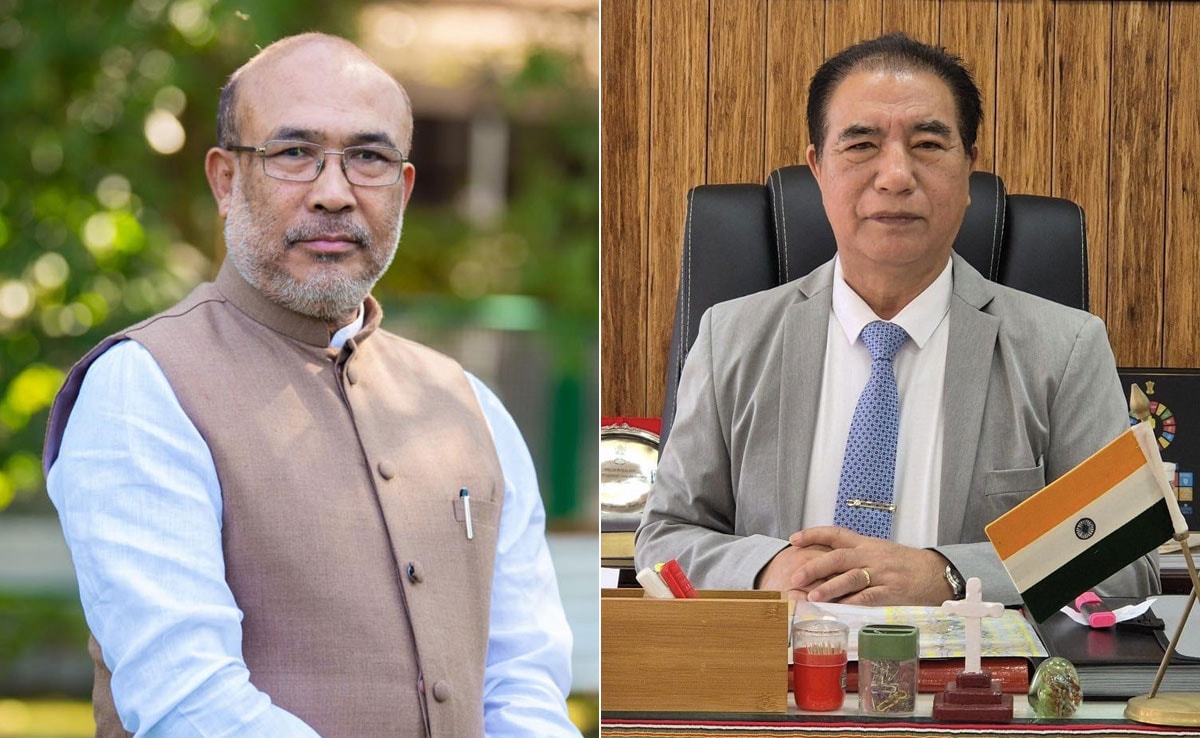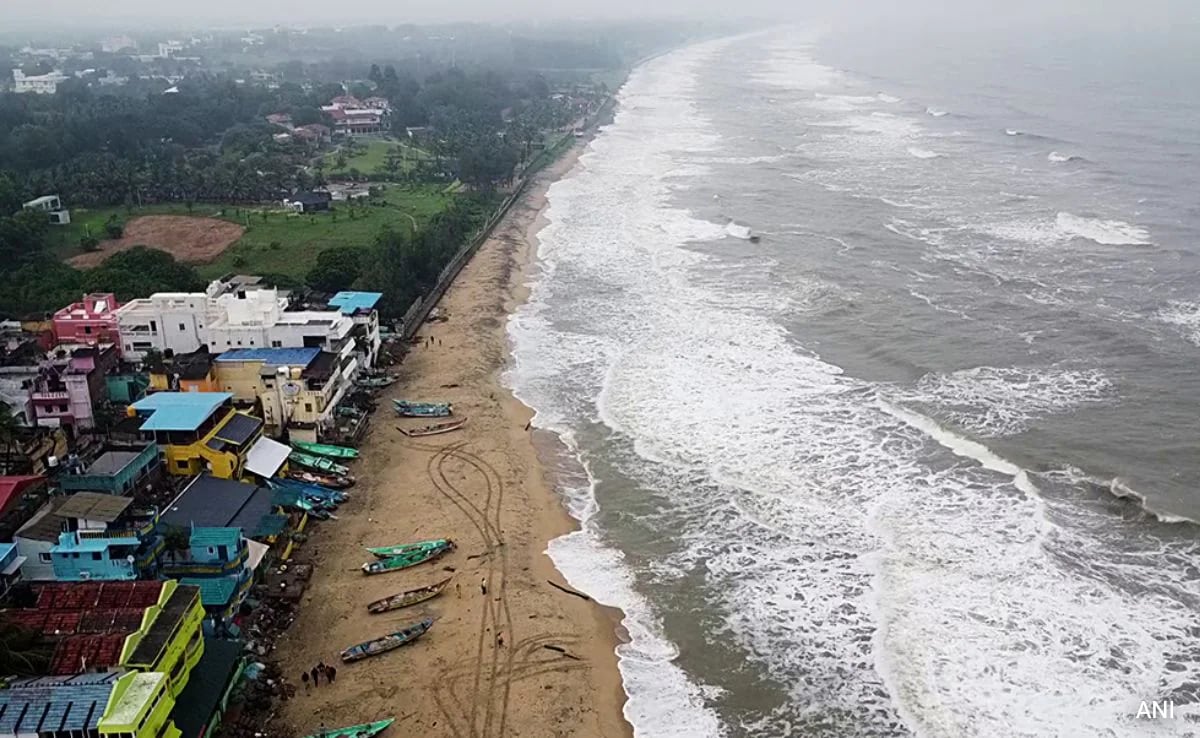

Manipur government criticised Lalduhoma for calling Manipur counterpart Biren Singh “liability”
Imphal/Guwahati:
The Manipur government has criticised Mizoram Chief Minister Lalduhoma for calling his Manipur counterpart N Biren Singh a “liability” for the state and the BJP. Lalduhoma also called for President’s rule in Manipur, in an interview to The Hindustan Times newspaper.
In a strongly worded statement, the Manipur government said Lalduhoma should not forget that in 1986, he “earned the dubious distinction of becoming the first ever MP in the country to be discharged under anti-defection law”.
“Thirty-four years later in 2020, he also became the first MLA in the country to be disqualified on charge of breaching the same law,” the Manipur government said.
“One may recall that the Mizoram Chief Minister had recently given a controversial speech in the US by calling for formation of a Christian nation by carving out areas from Bangladesh, Myanmar and India. In his words, ‘I want us to have the conviction and confidence that one day, through the strength of God, who made us a nation, we will rise together under one leadership to achieve our destiny of nationhood’,” the Manipur government said.
“India must be wary of the greater agenda of carving a Kuki-Chin Christian nation out of contiguous areas of Myanmar, India and Bangladesh, played out over decades of meticulous planning, through illegal immigration, land grabbing, displacement of original indigenous peoples, formation of Kuki-Chin dominated districts, establishment of Autonomous District Councils, upgradation of such Councils to Scheduled Areas, amalgamation of Kuki-Chin areas and finally nationhood. One must be wary of any attempt to push illegal Kuki-Chin immigrants from Mizoram to Manipur for land grabbing and creation of Greater Mizoram as part of this process,” the Manipur government said.

Manipur has been going through an ethnic crisis between the valley-dominant Meitei community and the nearly two dozen tribes known as Kukis – a term given by the British in colonial times – who are dominant in some hill areas of Manipur. The Kukis share ethnic ties with people in Myanmar’s Chin State and neighbouring Mizoram.
“In his interview, the Mizoram Chief Minister reveals his democratic credentials by espousing imposition of President’s Rule in Manipur while opposing boundary fencing of the Indo-Myanmar international border. He also calls for reunification of the Zo people. He also talks about the possibility of armed militias in Manipur pointing their guns at Delhi and the need for disarming, and sincere negotiations with hill leaders.
“He further questions the use of border-fencing, saying smuggling of guns, weapons and drugs could not be stopped along the Indo-Bangladesh border despite the border fences there. The Mizoram government has been steadfast in opposing the efforts of the Indian government to fence its open borders with neighbouring Myanmar for the purpose of curbing illegal immigration, trafficking of arms and drugs, internal security and defence. Myanmar is the origin of most of the illegal immigration and drugs problems that Manipur has been facing.
“The ongoing crisis in Manipur is a creation of illegal immigrants from Myanmar, whose economy, after illegally settling in the state, driven by cultivation of illicit poppy, had taken a severe hit under Chief Minister N Biren Singh’s War on Drugs. It is not on account of any anti-tribal policy of the state government, as has been falsely portrayed by the Mizoram Chief Minister through fabricated narratives and history. Mizoram Chief Minister must note that Manipur has a recorded history and a rich culture going back thousands of years unlike Mizoram which was carved out of the state of Assam only a few decades ago.
“In the period between 1969 till present, there has been an increase in the number of villages in the districts of Kangpokpi, Tengnoupal, Chandel, Churachandpur and Pherzawl by 893, from 731 to 1,624. In the remaining hill districts of Tamenglong, Noney, Senapati, Ukhrul and Kamjong, which are Naga-dominated, the increase during the same period is a figure of merely 49, up from 527 to 576, a mere 9 per cent increase.
“The Mizoram CM is apparently unable to fathom the reasons behind this abnormal 122 per cent increase in mushrooming of villages, many of which are in forest areas, in the first group of hill districts, which are Kuki dominated, or which have a sizeable Kuki population.”
The Manipur government said Lalduhoma may like to recollect that the Mizoram government, in view of similar concerns of pressure on land, livelihoods and resources, had instructed Myanmar nationals not to buy land and run business without permission from the state government.

“In addition, the foreigners should also not enrol for Aadhaar, voter list or obtain driving license, amongst others. The Mizoram Chief Minister is engaging in double standards when he criticises the decision of the Manipur government to tackle the issue of illegal immigration similarly in Manipur as ‘anti-tribal’,” the Manipur government in the lengthy, four-page statement.
It said Lalduhoma should understand that people in Manipur are also as human as those in Mizoram and feel the mounting pressure of illegal immigrants on land, livelihoods and resources equally.
Mizoram has fixed a cut-off date in 1950 for defining indigenous and non-indigenous people for implementing the Inner Line Permit System (ILPS). The Manipur Government had likewise set the cut-off date as 1951 for a similar purpose in the Manipur People Bill.
“Yet, in the book ‘The Indigenous Zomi’ co-authored by S. Khamzalian Ngaihte and K Vungzamawi, the authors refer to the Manipur Peoples Bill… (and) voice concern as follows: ‘if the act is to be implemented almost 80 per cent of the tribal population in the hill areas will be excluded from qualification as Manipur people and will be treated as non-Manipur persons… with disastrous consequences.
“The Mizoram Chief Minister may like to dwell on these lines and ponder over the scale of illegal immigration that has happened since 1951 as voiced by these authors from within the so-called Kuki-Zo community, instead of talking about discrimination against tribals by the Manipur government. Incidentally, the Manipur government has fixed a cut-off date of December 31, 1961 for the said purpose subsequently,” the Manipur government said.








